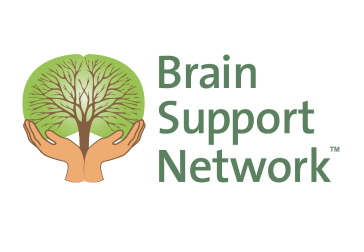learning center
End of Life Planning
At some point in your MSA journey, you will need help with your everyday needs. Whether that is a loved one who can serve as a care partner, or hiring a healthcare professional, it is vital to have a care team lined up to assist you and/or your family.
DISABLED ITEM
It’s important to put together an advanced directive, which includes a living will and/or the designation of a Power of Attorney (POA) for healthcare. These documents allow for a patient to decide on their treatment options, such as if they want to be placed on a ventilator, receive CPR if their heart stops, or have a DNR (Do Not Resuscitate) order.
A Power of Attorney (POA) for healthcare allows a friend or family member to make medical decisions if the patient is unable to do so. If you designate a POA, ensure they understand your wishes explicitly. A POA for healthcare is separate from a POA for finances, who can only make financial decisions on the patient’s behalf. Make sure to complete both if you wish to designate these responsibilities.
- Under current federal law, individuals are entitled to Social Security Disability Benefits (SSDI) if:
- they become disabled due to a medical condition that is expected to last at least one year or result in death.
- meet certain work history requirements (such as paying Social Security taxes on their earnings.)
Multiple System Atrophy is on the Compassionate Allowances list, which streamlines the SSDI application process and reduces the standard waiting time for a decision, which may take months.
Palliative care can help maintain quality of life and relieve pain. It would be helpful to become familiar with different agencies in your area early on, so that you can make an informed decision. Healthcare professionals such as social workers can help provide information or where to find it.
Hospice services are available for end-of-life care, typically when a patient is expected to survive less than six months. Once a patient is enrolled in a hospice program, the agency will cover anything related to the terminal illness, including medicine, medical equipment, symptom management, home health aides, and chaplain services. Many hospice agencies work with Medicare and private insurance. In addition to physicians, social workers can provide information and support when deciding on hospice programs, as these programs can differ based on where you live.
Brain Donation
Many people are overwhelmed by the idea of finding a facility to do a brain autopsy. There are two primary reasons someone may want to donate their brain:
- To confirm the diagnosis of multiple system atrophy – currently there is no definitive test for multiple system atrophy while the patient is still alive, however research is making great strides in establishing a diagnostic test.
- To assist researchers in finding a cause, develop treatments, and ultimately, discover a cure.
Most of the breakthroughs in neurodegenerative disease research have been made because of these generous final gifts. Researchers cannot make progress without being able to examine, in detail, the changes that happen in these diseases.
Facts About Brain Donation
- For some programs, the cost for the pathologist to remove the brain can be between $500 and $1,500. There is generally no charge for registering to be a donor or for the brain autopsy itself.
- Brain retrieval needs to occur within 24 hours of death, so making arrangements in advance is crucial.
- The institution performing the brain autopsy generally shares a detailed report of findings with the family.
- The brain is removed through a small incision in the back of the head, and preserved according to standardized protocols from the receiving institution. The body of the deceased is not disfigured and the family can choose an open casket if they wish to do so.
- The brain is preserved and can be shipped to additional laboratories for examination if desired.

Brain Support Network
The Brain Support Network can help families make plans for brain donation by identifying the lab to do the brain autopsy and finding a pathologist or other qualified individual to do the retrieval. The Brain Support Network, a 501(c)(3) non-profit organization, does not charge for their services.
Centers of Excellence Brain Donation Resources
Other Brain Donation Resources
The Harvard Brain Tissue Resource Center (HBTRC) advances research on the human brain and disorders of the nervous system. This is done by collecting postmortem human brains and distributing tissue samples to investigators across the US and around the world.
The NIH NeuroBioBank is a collaborative initiative led by the National Institute of Mental Health, comprising brain and tissue repositories. Its mission is to collect, store, and distribute well-characterized human brain samples to researchers studying neurological and psychiatric disorders
